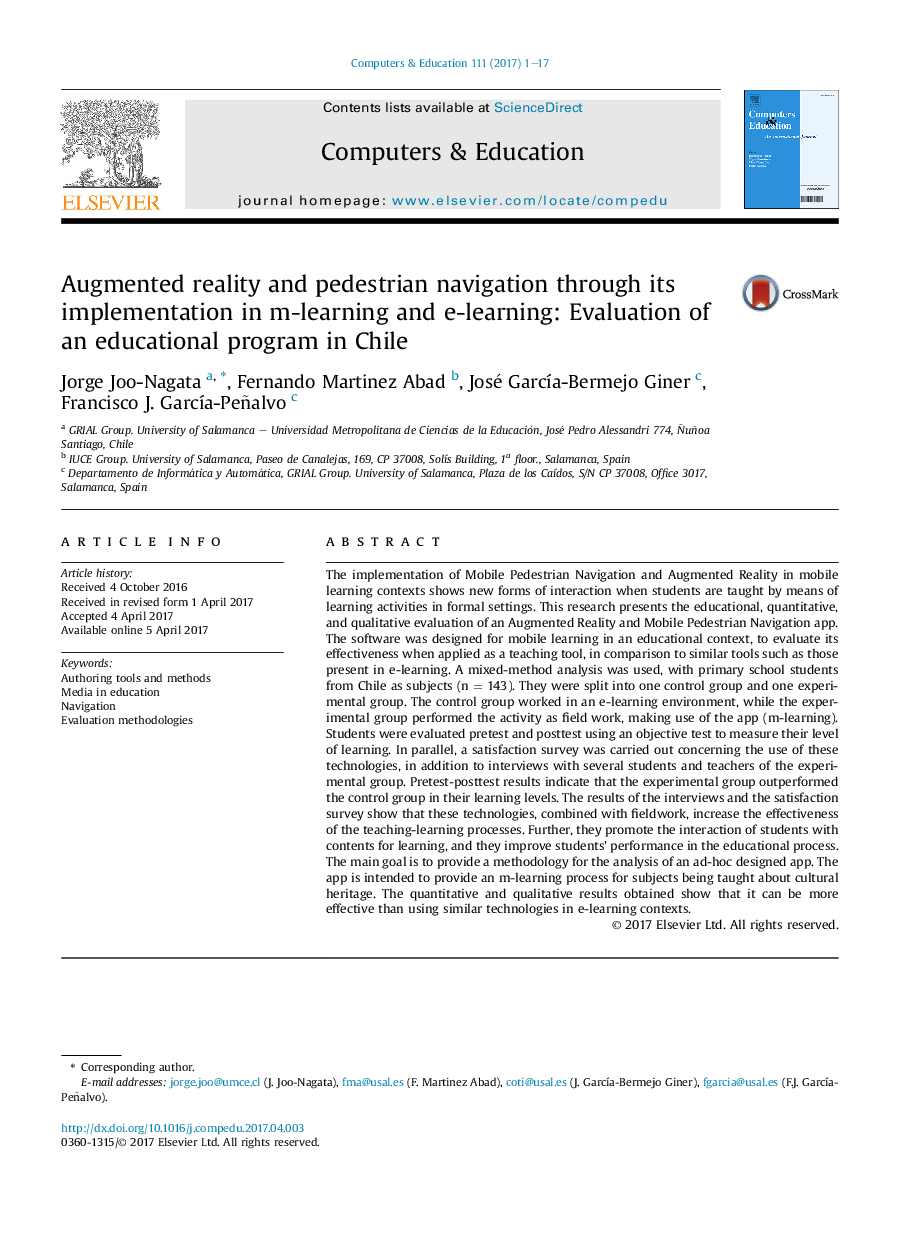ترجمه فارسی عنوان مقاله
واقعیت افزوده و ناوبری عابر پیاده از طریق اجرای آن در یادگیری الکترونیکی و یادگیری الکترونیکی: ارزیابی یک برنامه آموزشی در شیلی
عنوان انگلیسی
Augmented reality and pedestrian navigation through its implementation in m-learning and e-learning: Evaluation of an educational program in Chile
| کد مقاله | سال انتشار | تعداد صفحات مقاله انگلیسی |
|---|---|---|
| 103125 | 2017 | 17 صفحه PDF |
منبع

Publisher : Elsevier - Science Direct (الزویر - ساینس دایرکت)
Journal : Computers & Education, Volume 111, August 2017, Pages 1-17
ترجمه کلمات کلیدی
ابزار و روش نوشتن، رسانه در آموزش و پرورش، جهت یابی، روش های ارزیابی،
کلمات کلیدی انگلیسی
Authoring tools and methods; Media in education; Navigation; Evaluation methodologies;

